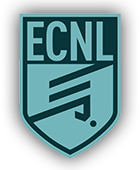Frequently Asked Questions About FC Wisconsin
Question: Can I play high school soccer and still play in the ECNL and with FC Wisconsin?
Answer: Yes! FC Wisconsin offers an optional spring program for those players that prefer to play club soccer year-round. We offer this program because many players in the club desire to participate in a year-round option in the club. If players prefer to play high school soccer, they are free and able to do so.
Answer: FC Wisconsin has an outdoor training complex in Germantown, and in indoor training field in Mequon.
Question: How do I know if FC WIsconsin or the ECNL is right for me or my daughter?
Answer: This is a very personal decision. Players come to this decision at different times in their life, but the most frequent age where players face and answer this question is somewhere between age 11 and 14.
The best way to make this decision is to ask a different question: “Where do I want my soccer to be in 5 years, and what do I want to be doing in soccer?”
The worst way to make a decision about your soccer career, (especially if you have aspirations of playing Division I college soccer), is to make a “group” decision or a "social" decision. As players age and mature, (usually beginning at U13), individual priorities and focus changes. Some players begin to prioritize soccer and embrace ambitions of playing at high levels, while others grow other primary interests and show lower commitment to the sport. There is a reason elite soccer (or any sport for that matter) is structured as a pyramid, with a broad base that becomes increasingly narrow as players get older and move to higher levels. “Group” decisions or "social" decisions reflect the priorities of the majority, and almost always skews towards players with lower ambitions or less focus on soccer.
Question: How do I distinguish between coaches and clubs to determine the right fit for me or my daughter?
Answer: Different coaches and clubs cater to different priorities. FC Wisconsin was created to serve athletes and families with ambition to be great, and the answer to this question is focused on these athletes and families.
Soccer is filled with great salesmen – coaches that sound good, tell you what you want to hear, and promise lots of rewards and success without mentioning a word about the difficulties in the path, and the obstacles that are there. (Read more here.) So how do you make a good choice?
- Look at resumes. See what they have actually done in coaching – not what they have talked about, or where they have played.
- Look to see if the coaches are involved in player development at a national level. Just like playing, coaching is a pyramid – only a few are working with the country’s best and there is usually a reason why.
If you ask questions and listen to answers, and if you look … the path usually becomes clear. Doing the research helps make the right decision.



